Eczema, also known as dermatitis, is a condition that causes the skin to become inflamed, itchy, red, and sometimes blistered or cracked. Allergens, irritants, or underlying health conditions often trigger it. Eczema can appear on various parts of the body, depending on the specific type, with common areas including the face, scalp, neck, hands, feet, legs, arms, and particularly the eyelids and the area around the eyes. Eczema can appear on various parts of the body, depending on the specific type, with common areas including the face, scalp, neck, hands, feet, legs, arms, and particularly the eyelids and the area around the eyes.
This article focuses on atopic dermatitis affecting the eyelids and surrounding areas. It explains how to recognise the symptoms, explores potential causes and triggers, and provides guidance on daily care for atopic skin. Additionally, it covers specific treatments for eyelid dermatitis, including the use of eye creams designed for eczema.
What is eyelid dermatitis?
Eyelid dermatitis, also known as eye eczema, is a skin condition that causes inflammation and dry, red, and itchy patches on the skin. Over time, your eczema breakouts may subside and clear up, but they can flare up again when your skin comes into contact with an irritant.
It's common in both adults and children, especially those who already have eczema on other parts of their faces. If you or your child have experienced eczema since childhood, you're more likely to have it on your eyelids as well. This condition often runs in families and is more frequent in people with sensitive skin. While it's widespread in babies and children, many adults can have it too.
How do I know if I have eyelid dermatitis?
If the skin around your eyes is dry, red and itchy then you may have atopic dermatitis. This affects one or both of the eyes. People with eczema on the eyelids generally experience the following symptoms:
- scaling skin
- swelling
- pain or burning sensation
- rash under the eye(s)
- raised or weeping bumps
- red, brown, or grey patches
- thick, cracked, or creased appearance
- sensitivity caused by scratching
Eyelid irritation can be managed by avoiding triggers and using the right treatment. Eczema on eyelids can become a long-term condition however. If you are in any doubt about your symptoms, we advise that you consult your doctor who will be able to give you a full diagnosis and advice. Eczema around the eyes can easily be mistaken for dark circles around the eyes.
Who suffers from eczema around the eyes?
Those who have had eczema diagnosed since early childhood are more likely to suffer from eyelid eczema. So if you or your child already experience atopic dermatitis on other areas of your body, then it is likely that the symptoms around your eyes are linked. A family history of atopic dermatitis is a factor, and it is more common in people with sensitive skin. Facial atopic dermatitis is especially common in babies and children, but many adults have it too.
What are the types of eyelid dermatitis?
There are several other eczema types that can affect the eye area and present very similar symptoms. These include:
Atopic dermatitis (AD)
Atopic dermatitis, or atopic eczema, is a chronic (persistent or long-term) skin disease characterised by dry, flaky, and itchy skin. It can appear anywhere on the body and may flare up on the face. With this condition, the top layer of skin struggles to protect against allergens or irritants and does not retain adequate moisture.
Seborrheic dermatitis (or seborrheic eczema)
Seborrheic dermatitis is a type of skin condition believed to be caused by a reaction to yeast on the skin. This can also affect the edges of the eyelids. The skin may look red with yellow flakes, but it is usually not very itchy. This condition often appears on the scalp but can also be found in oily areas, such as the eyelids. Seborrheic dermatitis can affect both children and adults, in the eye area is more commonly seen in adults.
Contact Dermatitis
Contact dermatitis is a red and irritating rash caused by an allergic reaction to something that the skin is, or has been, in contact with. The most common form of contact dermatitis in the eye area is caused by an allergic reaction to nail polish, which occurs when people wearing polish rub their eyes, but other types of make-up, or metals such as nickel, can also cause sensitivity or a rash under eyes.
Learn more about other different types of eczema. By being aware of the type of eczema you have, you can provide the right treatment for it.
What causes eczema around the eyes?
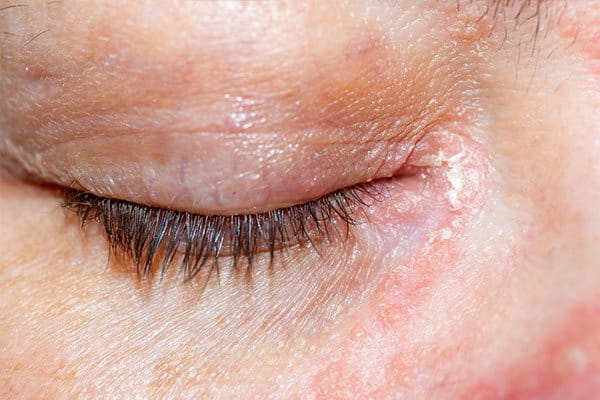
Eczema often affects the eyes because the skin is very thin and delicate, and is around three times thinner than the rest of the face. The eyelids have many blood vessels but little fat, making them prone to drying out, irritation, and allergic reactions.
Once skin in this area has become dry and irritated, scratching worsens the symptoms, as the skin in the eye area is so easily damaged.
Other factors that may cause eyelid dermatitis include:
- Allergies: Reactions to certain makeup products, lotions, sunscreens, perfumes, or metals like nickel in jewellery or eyewear can cause dermatitis.
- Irritants: Harsh chemicals in some cleansers or hair sprays can irritate the sensitive skin on the eyelids.
- Environmental Factors: Exposure to extreme weather, such as cold or dry conditions, can dry out and irritate the skin.
- Infections: Bacterial or fungal infections can lead to inflammation and irritation of eyelids.
- Skin conditions: Conditions such as atopic dermatitis or seborrheic dermatitis affecting other parts of your body can also impact the eyelids, causing redness and irritation.
There are many potential allergens and irritants in the environment, so it might not be easy to identify your triggers, but keeping track of these in a journal may help you discover the cause of your eyelid irritation.
Atopic eczema around the eyes treatment
Atopic dermatitis has two distinct phases. During both phases, it is important to use gentle, fragrance-free eye makeup removers, cleansers, and moisturisers daily, and in the periods between flare-ups. Avoid cosmetic products that contain fragrances and preservatives, as these may irritate your skin.
During the acute phase, a non-medical product like Eucerin AtoControl Acute Care Cream can be used as an eye cream for eczema alongside medical treatment to soothe the skin during a flare-up.
For everyday care of eyelid dermatitis, Eucerin AtoControl Face Cream has been clinically and dermatologically proven to hydrate, soothe, and reduce dryness. Its non-sticky formula is enriched with Licochalcone A and Ceramides, which help to regenerate and strengthen the skin's barrier, relieving tightness, and itchiness. With regular use, the cream improves the overall skin condition, leaving it soft and smooth. Eucerin AtoControl Face Cream is fragrance-free, making it an ideal base for makeup. It is also suitable for children and babies aged three months and older.
Important: Eucerin AtoControl products are not suitable for use inside the eyes or on the eyelashes.
Medical treatments for eyelid dermatitis
If you are dealing with a flare-up of eyelid eczema, it is important to use a cream designed for dry eyelids and to talk to your doctor about how to care for the sensitive skin around your eyes. Your doctor might recommend corticosteroids, which are creams that help reduce dryness and inflammation by treating the eczema directly on your eyelids.
Usually, only mild steroid creams are used on the eyelids because stronger ones can make the skin thinner. For this reason, your doctor will prescribe them for only a brief time, with the strength of the cream depending on how severe your symptoms are.
Another treatment option is topical calcineurin inhibitors (TCIs). These can be taken as pills or applied as a cream. Unlike steroids, TCIs will not thin the skin, but they do have some risks. They can weaken the immune system, and they may cause your skin to become more sensitive to sunlight.
How to prevent flare-ups of eyelid dermatitis
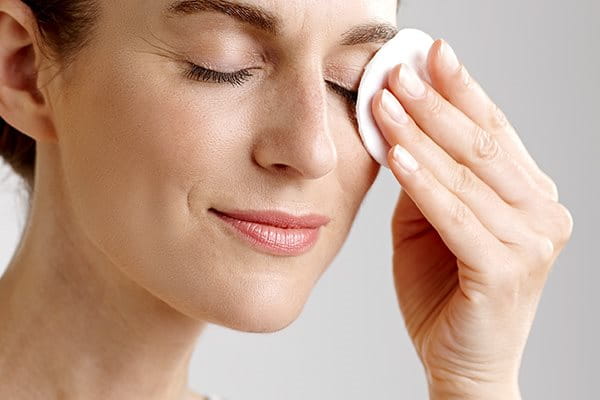
As explained, the causes and triggers of eczema on the eyelids can vary. While eyelid eczema may not pose serious health risks, it can significantly impact daily life.
Consider the following tips to help reduce the chances of future flare-ups. Keep in mind that some actions may be more effective for your skin than others.
- Moisturise regularly: Moisturise your eyes regularly as part of your skincare routine, taking care not to get the product in the eyes.
- Don’t scratch your eyes: Avoid rubbing or scratching your eyes, as this can cause further irritation and increase the risk of infection.
- Limit make-up use around the eyes: Products such as mascara or eye shadow can irritate the sensitive skin around the eyes - or switch to hypo-allergenic brands.
- Avoid irritants: If you spend a lot of time outside, consider wearing glasses or goggles to shield your eyes from potential irritants. Reduce the length of your showers or baths to limit the time skin is exposed to possible irritants and strong soaps.
- Cool Compresses: Use a cold or warm compress to soothe itchy eyes.
- Manage allergies: Food allergies can trigger eyelid dermatitis, so consider dietary changes such as cutting out dairy products. Consult your doctor before making significant changes to your diet.
Our brand values

We deliver a holistic dermo-cosmetic approach to protect your skin, keep it healthy and radiant.

For over 100 years, we have dedicated ourselves to researching and innovating in the field of skin science. We believe in creating active ingredients and soothing formulas with high tolerability that work to help you live your life better each day.

We work together with leading dermatologist and pharmacist partners around the world to create innovative and effective skincare products they can trust and recommend.
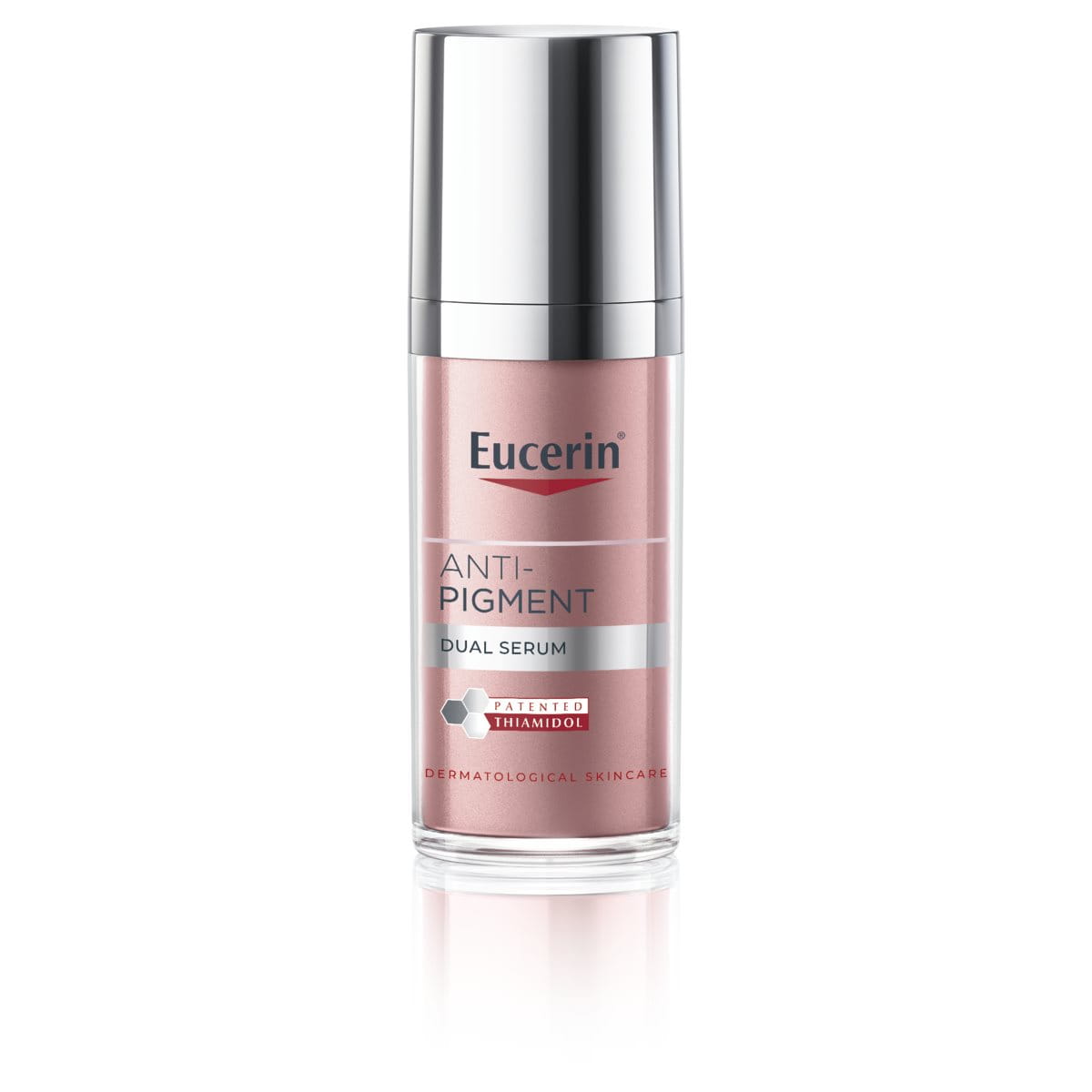
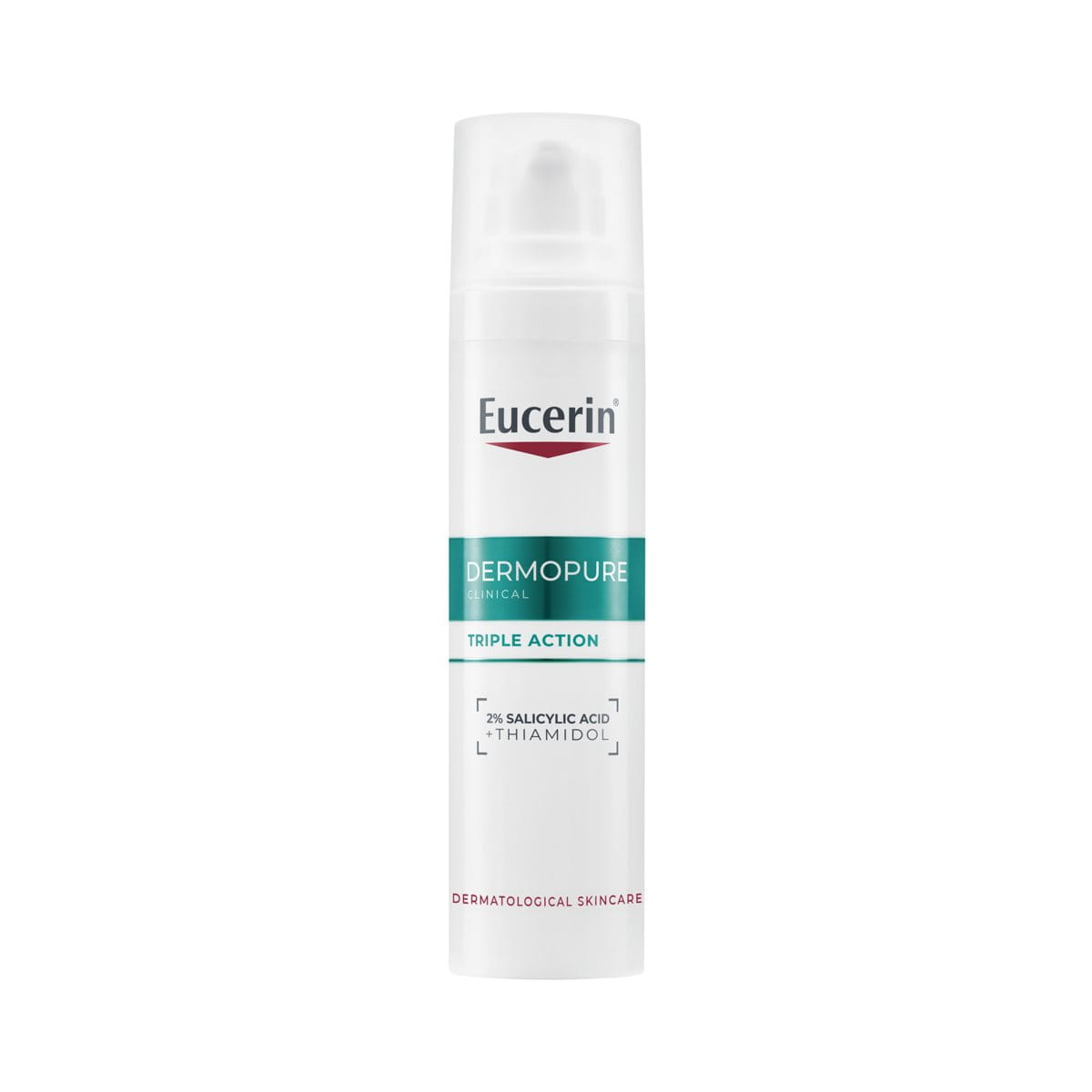



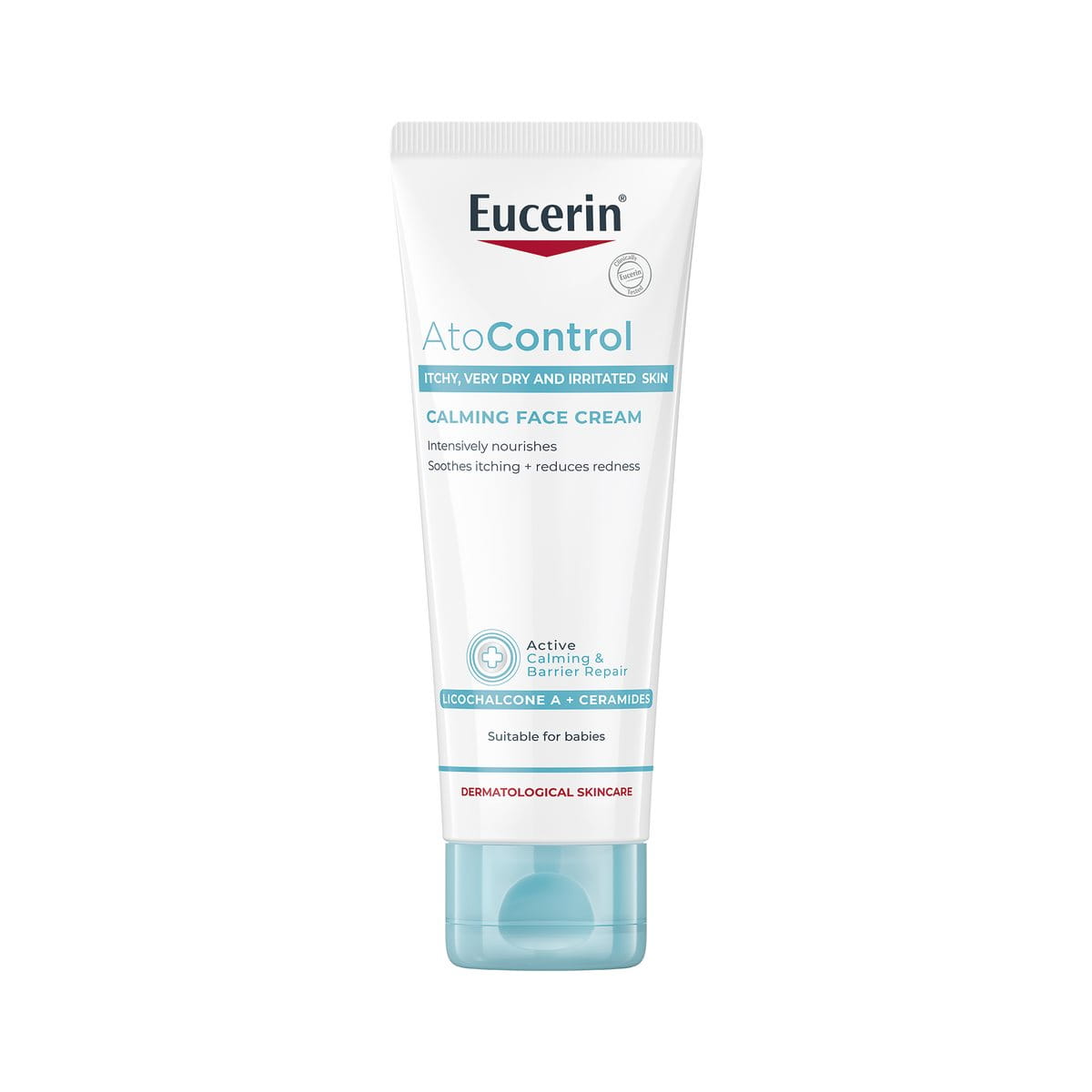
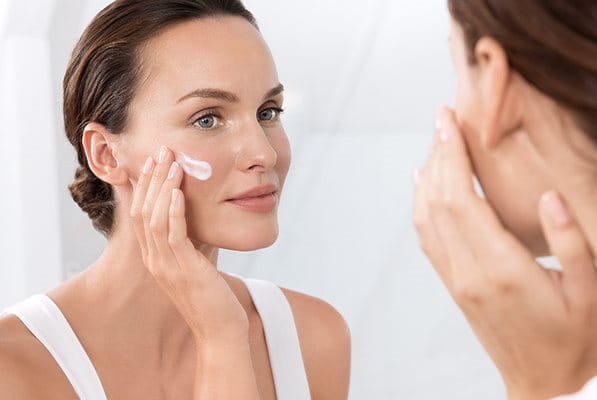

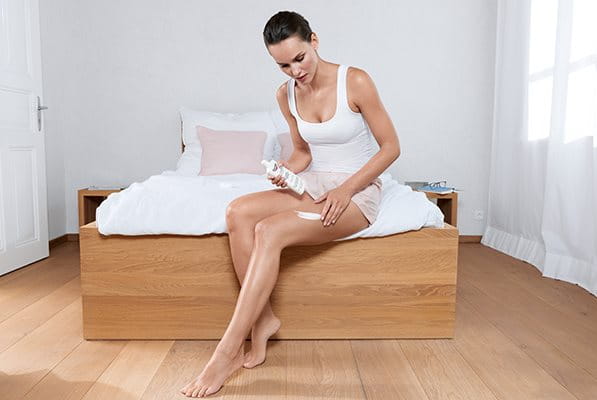
.jpg?rx=536&ry=0&rw=5616&rh=3763&hash=C8358E6898143DC9AA19E93A076F1DA2)

